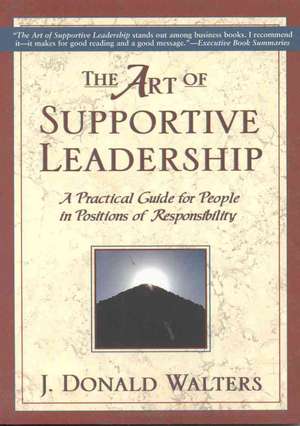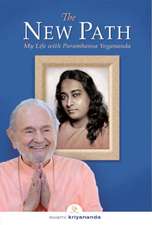The Art of Supportive Leadership: A Practical Guide for People in Positions of Responsibility
Autor Swami Kriyanandaen Limba Engleză Paperback – 31 mai 2004
Preț: 94.62 lei
Nou
Puncte Express: 142
Preț estimativ în valută:
18.11€ • 18.84$ • 14.95£
18.11€ • 18.84$ • 14.95£
Carte tipărită la comandă
Livrare economică 14-28 aprilie
Preluare comenzi: 021 569.72.76
Specificații
ISBN-13: 9781565891401
ISBN-10: 1565891406
Pagini: 137
Dimensiuni: 128 x 179 x 11 mm
Greutate: 0.15 kg
Editura: CRYSTAL CLARITY PUBLISHERS
ISBN-10: 1565891406
Pagini: 137
Dimensiuni: 128 x 179 x 11 mm
Greutate: 0.15 kg
Editura: CRYSTAL CLARITY PUBLISHERS
Descriere
Here is a new approach, one that views leadership in terms of shared accomplishment rather thanpersonal advancement. Not just another collection of management principlesneither academicnor faddishThe Art of Supportive Leadership clearly demonstrates how leaders can bring outthe highest in human potential from their employees, co-workers, or students. Drawn fromtimeless Eastern wisdom, this book is clear, concise, and practicaldesigned from the start toquickly produce results even for those who dont have huge amounts of time to spare.
Notă biografică
In 1972 a fortuitous confluence of events made it possible to revive Yogananda's educational ideals. J. Donald Walters, a close American student of Yogananda's, had founded Ananda, the first World Brotherhood Colony, along the lines suggested by Yogananda. The families that gathered there were eager to provide their children with a school based on the principles from Ranchi.
In 1917 the model for future Education for Life schools was founded in Ranchi, India, by Paramhansa Yogananda Paramhansa Yogananda, the author of Autobiography of a Yogi. He described some of his ideas in several documents, along with chapter 27 of his autobiography.
In 1986 Mr. Walters published a major work, Education for Life, a book which describes the principles that Yogananda developed in language that is attuned to the modern Western audience. The book was launched at a weekend program at Ananda Village, attended by over 150 people. Walters emphasized that the principles described in the book are non-sectarian and could be broadly applied.













